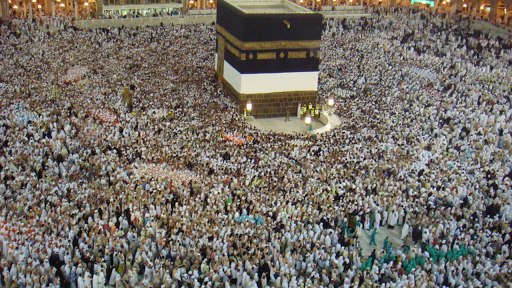 The Five Pillars of Islam
The Five Pillars of Islam
The Muslim ritual has five responsibilities, called pillars of religion, which are recognized by all believers, regardless of affiliation to sects and fractions.
1. Confession of faith, or shahadah (arab. certificate), it is a confirmation of Muhammad's strict monotheism and prophetic mission. Speaking the phrase in public three times: La ilaha illa Allah wa-Muhammad rasul Allah (There is no deity but only God, and Muhammad is his prophet) decides on admission to Islam and is an integral part of every Muslim prayer. Immediately after birth, it is whispered in the ear of babies.
2. Prayer, that is lettuce, it is said five times a day: before sunrise, just afternoon, in the evening (between noon and sunset), in the evening (between sunset and dusk) and at night (from the evening prayer to the morning prayer ). The condition for joining the prayer is ritual cleansing through ablution of one's body, or rather parts of it (hands to the elbows, legs after shaving, face with ears and neck). Interestingly, if the water is too far away (above 4 km) or in a hazardous location, you can wash yourself with sand. The muezzin from the minaret called the faithful to pray, standing on a special balcony, but nowadays it is replaced by loudspeakers. The Friday prayer in the mosque is especially important, in which participation is a religious obligation, comparable to the participation of Christians in Sunday Mass. In prayers we know is turning towards the toilets, that is, towards, where is Mecca. In a mosque, it is indicated by the location of the mihrab. The actions performed during prayer are a rather complicated pattern of bowing and crawling.
3. Post (above) valid throughout Ramadan (should. ramazan) – ninth month of the Muslim calendar (lunar year). Fasting is about holding back during the day (from sunrise to sunset) from eating, drinking, smoking and sexual intercourse. Mentally ill persons are exempt from it, kids, menstruating women and travelers. Fasting aims to bring people closer to God, trening woli – subordination of the body to the spirit.
4. Alms (zakat, that is, cleansing) it is the duty of every wealthy Muslim. The almsgiving is precisely defined as to the amount or amount of the donation (one fortieth of your annual income, in cash or in kind) and being initially an act of goodwill, turned into a mandatory tax paid to the Muslim community. Zakat is a way to feel the believer's social responsibility and the will to strengthen the community. Alms are given to the poor, prisoners of war, debtors, traveling and expelled. Nearest family does not receive it, self payers and infidels.
5. pilgrimage (hajj) to Mecca is the last pillar of Islam. Every healthy Muslim should do it at least once in a lifetime, which is allowed by material conditions (the poor and handicapped do not have to go on a pilgrimage). Travel to Mecca, more specifically the temple of Al-Kaaba, preferably in the month of zu al-hijjah – last month of the Muslim calendar.